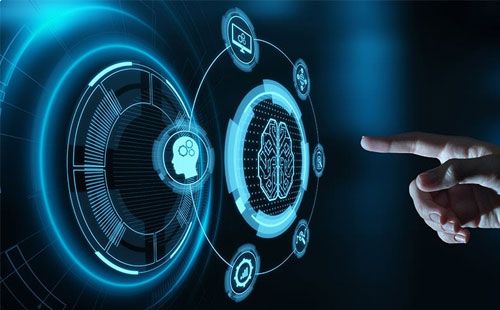

Smart technology is transforming many every aspect of our everyday lives, and the same goes for DevOps. Machine learning and AI in DevOps will alter how we code, how we test, and our DevOps processes productivity.
For learning what big changes we could expect in the coming years, we should discuss the transformations we hope to see over the next few years in DevOps consulting, thanks to the advancements in machine learning consulting and AI technologies.
Here are the seven predicted changes in AI and ML in DevOps:
AI and machine learning will have an influential part in stimulating releases, especially through test impact analysis, where smart technologies can understand which test needs to be executed. Today there is a lot of regression testing performed on a very high frequency. AI and machine learning will expedite these tests release cycles and eliminate most of the tests for code changes. More and more teams are adopting test impact analysis technology, and right now, it is in the initial phases of adoption. AI and machine learning will improve as adoption increases.
The second change that AI and ML are going to bring in DevOps is in terms of better assessment of quality risks or quality governance. It is the capacity to understand the quality risk of action, like before releasing or merging a code. Teams will be able to answer the questions such as this ahead of time. They will also be competent in combining information from Gate Ops, APM, code changes, defects, and testing, of course, and understanding the quality risks and actions that should be performed based on those insights.
Everybody was excited about open source a couple of years back. Nevertheless, the mindset has turned to commercial instruments in recent years. Productivity and value are explanations for this. Companies think about merit and competitiveness and less about open-source or business software.
We will see more advancements in bots and virtual assistants in the coming years, beginning with custom communications, primarily done by bots, focused on artificial intelligence and machine learning. Many businesses do invest more money in chatbot creation right now. It is very understandable if we take the possible cost savings of bot communications into account. Companies will save billions on chatbots in the United States soon. In short, what we see is that AI-based bots and computer education take their place in our lives and need to be tried and educated in serious ways.
We will see a spike in AI security research shortly. The diversity and the cultural dimensions of human contact with such systems are not considered in AI-based systems. Further analysis and attention will be carried out, and programs in operation will not be racially distracted from the present and forthcoming IA-based systems. Human experiences with these devices and output speeds would be safer.
Low code frameworks for production would truly be immense. We see rapid consumer demand growth, and developers must rapidly define the functionality to satisfy these growing customer demands. As with Intelicode, we already have AI-based IDEs, but they will become more AI-based IDEs and frameworks to meet these increasing demands of consumers. And as fast as possible, they should push enhanced functionality.
As we know them right now, AIOps is more or less the following level of DevOps facilities. DevOps is becoming exceedingly complex, with more details on all service routes, such as infrastructure management. To manage the complex, continuously evolving environment, Devops would need the power of AI and machine learning.
Furthermore, the TestOps will appear. To this degree, QA has concentrated on automation tests, but what about automation tests? If we think about monitoring, the artifact is usable in the CI/CD pipeline and automates tests and writes bug reporting. It is the whole method of research. What we can see is an adjacent area called automation of robotic processes and smart automation. And here, the premise is that certain manual procedures can be automated with bots.
The solution to this high-speed DevOps ecosystem is continuous scale monitoring and automation testing with Jenkins. Nevertheless, these new methodologies also provide vast quantities of test findings. This set of data generates possibilities and threats, just like every other marine.
It takes too long to evaluate data and inhibits companies to trip fast and timely to the root cause. The analysis is conducted consecutively and does not allow optimization (fixing the most critical /impactful defect) and the correlation between issues given the large volume of data analyzed.

So, the two areas that the integration of test automation and machines are looking at are:
1. Automated Test Configuration
2. Maintenance and optimization research.
Data is a valuable and effective research facilitator. Effective data usage could assist with the rapid filtering of noise (false negatives) and concentrate on real errors, like business risk. In the past decade, machines’ role in the test space has increased – mostly by manual tests replaced with automation testing with Jenkins. AI and ML seem that humans would continue to be near to the test in the future, but we may be seeing an interesting change from SDET to DSET in the next decade (Data Scientists in Test).
Also Read: Machine Learning As An Innovative Method And The Scope For Artificial Intelligence